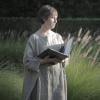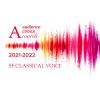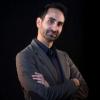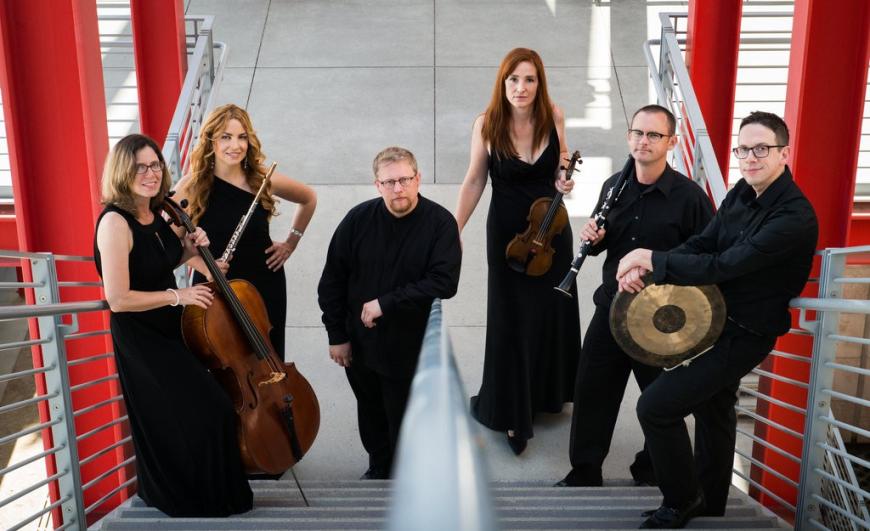
If there’s one thing that defines Los Angeles, it’s that the city is a vast melting pot, a magnet for diverse individuals who celebrate and explore their unique personae. For six composers, six librettists, and an array of singers and instrumentalists, this is the concept behind “Interstitial: A Book of (Musical) Stories.”
Conceived in 2018 and premiering at USC’s Newman Recital Hall on Oct. 11, the multipart work explores topics of migration, gentrification, community, and more. The concert came together through pianist Aron Kallay, who founded the contemporary classical music sextet Brightwork in 2013, and tenor/composer Fahad Siadat, who is artistic director of HEX, the contemporary vocal ensemble dedicated to performing new works. (Both Brightwork and HEX were nominated for this year’s SFCV Audience Choice Awards in multiple categories.)
For composer Veronika Krausas, a professor at the USC Thornton School of Music whose commissions and performances include works for the Los Angeles Philharmonic, New York City Opera, and The Industry (for whom she contributed to Yuval Sharon’s 2015 groundbreaking 24-limousine opera, Hopscotch), the project proved exciting.
“I’ve known Aron for years and have done many projects with him, and Fahad lived in New York and had sung a piece of mine when he lived [there]. The two got together wanting to deal with stories about L.A. — the idea of being in between.
“Fahad is Persian and Arab but American,” added the 59-year-old Krausas. “I’m Canadian, but I live in L.A. [Fahad] approached me about being artistic director, or curator, of the project. The idea of storytelling intrigued me — your take on L.A. and how it is to exist in such a large city and have different stories and different angles.”
Indeed, Krausas said this reminded her of the Sharon opera, which took audiences on a dazzling and disorienting ride through the streets of Los Angeles. “I had a couple of scenes in Hopscotch, in areas I didn’t know, and I felt like a tourist in my own city. L.A. is such a large city. When we were in initial discussions, [we thought] that everyone has a different idea about L.A. and their experiences.”
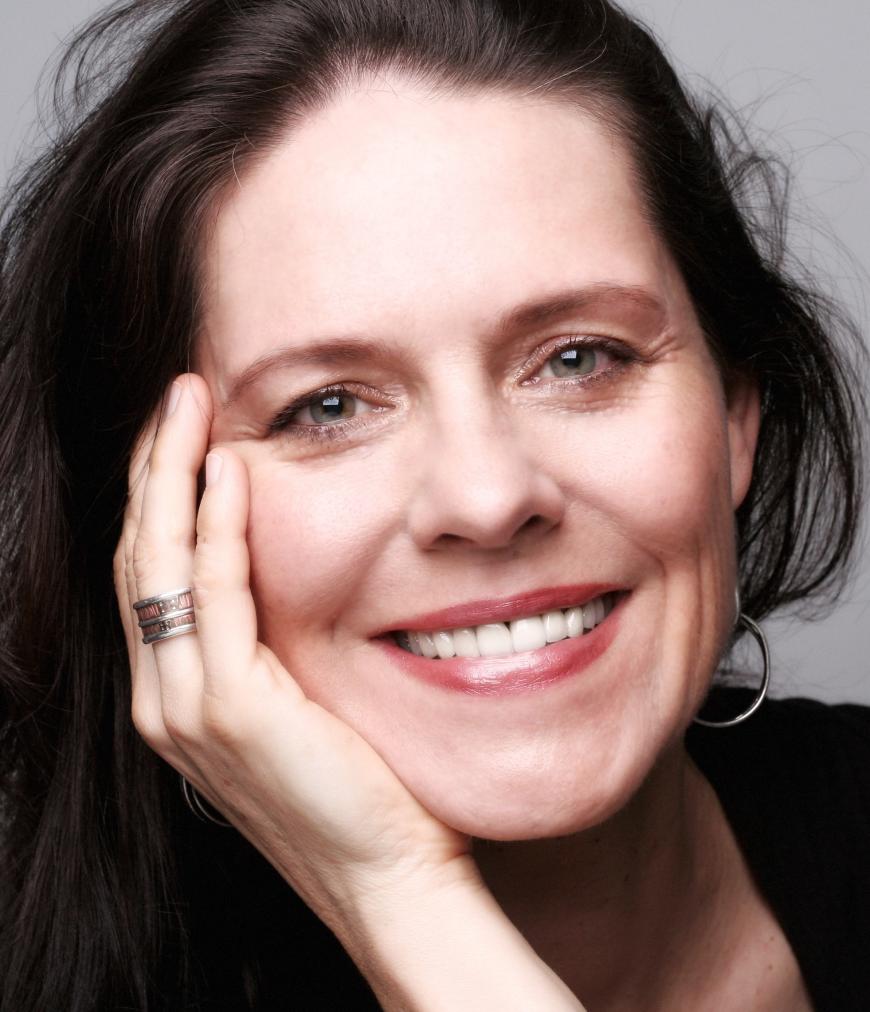
In addition to Krausas, the five other composers for “Interstitial” are Nicolas Lell Benavides, Carolyn Chen, Saunder Choi, Molly Pease, and Siadat, while the librettists are Molly Bendall, Rickerby Hinds, Warren Liu, Brian Sonia-Wallace, Renée Reynolds, and Sarah LaBrie. Krausas, who paired with LaBrie, said that both groups feature a wide mix of creatives. “Everyone’s pieces are so completely different. And we wanted to make sure we had a variety of ensembles as well, six singers and six instrumentalists.”
To that, Krausas — whose 10-minute piece, Stories, deals with nature and is scored for soprano, flute, and bass clarinet — added a caveat: “One of the things with using so many different creative voices is the danger of having something that makes no sense together. But I have no fear that this will actually work. There are so many different ways of looking at L.A — it will make sense in that context.”
Krausas added that “Interstitial” defies categorization. “The weird thing is when we’re talking about [each pairing’s work], mainly they’re like mini-operas, or maybe a cantata, but until we get it altogether in performance, we won’t be able to tell. It’s a bit of a mix of all those things. It’s an extended song cycle, a diverse opera, a cantata. All these [labels] are appropriate, especially how the lines between different [musical] genres are blurring so much these days.”
As HEX is a vehicle for new music for the voice, the Los Angeles-based Siadat, who was born and raised in Oregon by an Iranian father and a mother from Bahrain, agreed that the project was an innovative way to tell musical stories. “Aron and I realized that this was a natural fit for a vocal sextet and instrumental sextet that would have great synergy for it. From there we kicked around ideas.
“I’ve been interested in musical storytelling,” continued Siadat, “that was different from musical theater and opera. People in the new-music world are hungry for ways to tell stories that don’t come with a tradition and the baggage of grand opera as an institution. Musical theater has its own aesthetic that is more in the pop world, and there are other interesting ways to tell stories that are outside of the weight of those two traditions.”
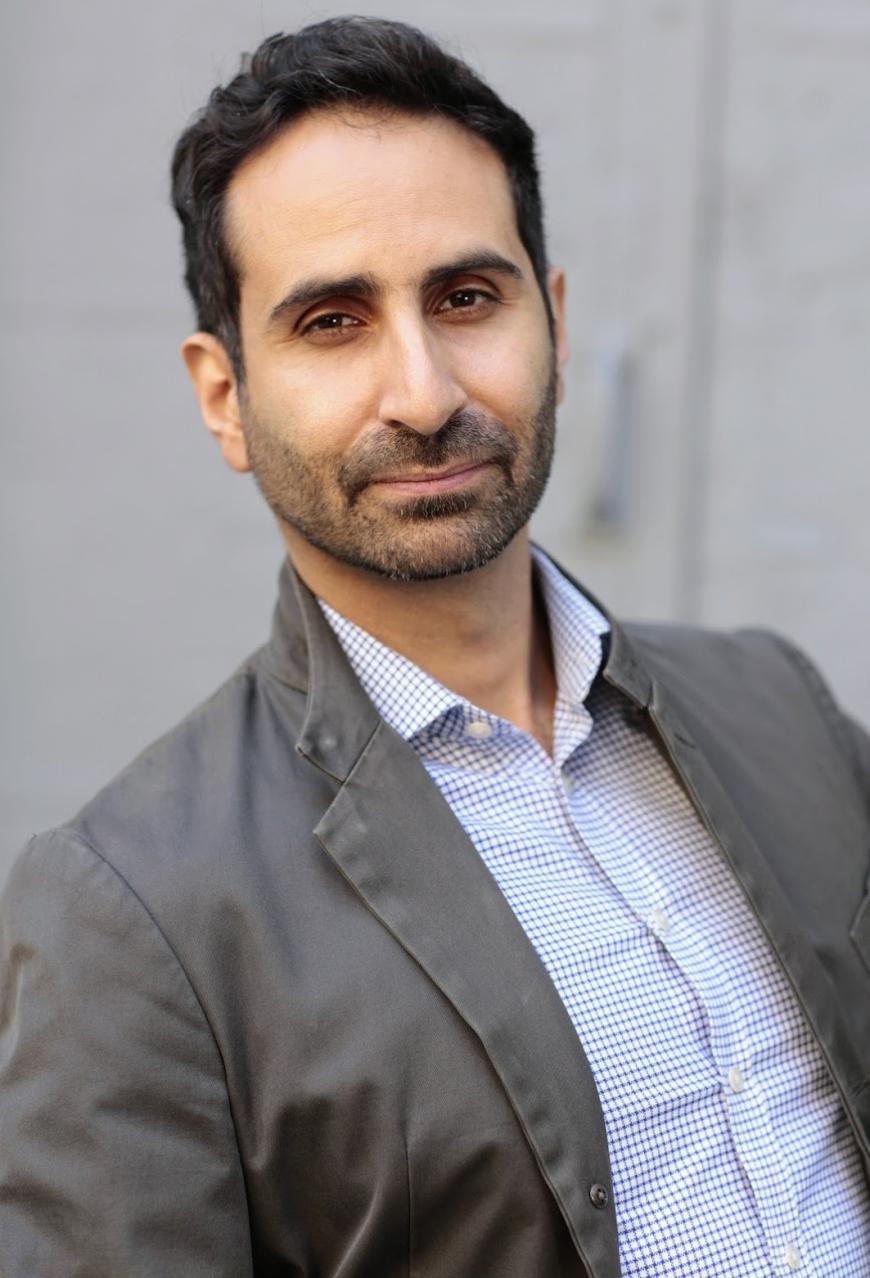
Siadat, 40, worked with writer Reynolds on their piece My House Is Not My House. Scored for piano, flute, clarinet, vibraphone, and six voices, the work, he explained, is more about the natural world. “We were talking about what parts of L.A. are eternal, and it’s based on a joke: You cut down all the trees to build a development then name streets after them — Elm, Oak.
“Throughout this,” noted Siadat, “there’s the idea that this is an ecological period of time and nature persists, regardless. All of this urbanity is impeding on it, then there’s a big fire, and what remains is nature. It’s the persistence of nature, gentrification [and] development, and the complicated relationship with those things.”
Other musical stories are Chen and Liu’s Without History, Without Pain and Pease’s meditation on Ballona Creek, Waterways and Dwellings, featuring words by Bendall. Intersections (MLK and Coliseum) pairs Benavides with librettist Hinds and, according to Siadat, “is very personal. It’s about a young man who goes to a prostitute for the first time at the corner of MLK Boulevard and Coliseum. It has sexual undertones and is rooted in an emotional, abstracted space. Yes, it’s about meeting a prostitute and losing [one’s] virginity, but it’s also about the shift from child to adult.”
Another work dealing with sexual material is Choi and Sonia-Wallace’s piece Johns, 1–14: Our Secret Sermon. Siadat explained that these longtime colleagues wanted to tell a story about the gay bathhouse experience in opera form. “The sacredness of that space and the mystery of the bathhouse is, in a way, esoteric. It’s the adrenaline and sacred mystery — sort of [like Stanley Kubrick’s] Eyes Wide Shut, the ritual of that space.
Siadat likens the experience of hearing “Interstitial” to reading a great book of short stories. “Ben Loory writes these fantastical short stories that are two pages, each with wild energy. The whole thing is a journey, and they’re all disparate, yet it does feel like there’s an energy, and the concert experience has all these ebbs and flows of narrative arcs. Anyone in the audience might feel inspired in how they might approach their own storytelling experience of riding through a series of wonderful narratives.”


